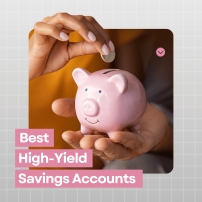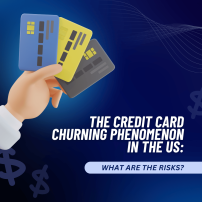Financing for Small Businesses and Entrepreneurs

Advertisements
In today’s competitive economic landscape, securing the right financing is crucial for small businesses and entrepreneurs seeking to turn their visions into reality.
Whether you are launching a startup, expanding an established company, or simply looking for ways to innovate, understanding your financing options can make the difference between stagnation and success.
The Importance of Financing for Small Businesses and Entrepreneurs
Financing is the backbone of any business venture.
For small businesses and entrepreneurs, it not only provides the capital needed to start or expand operations but also plays a critical role in managing cash flow, investing in new technologies, and seizing market opportunities.
Adequate financing allows businesses to:
- Invest in equipment, inventory, and technology.
- Expand their market reach and scale operations.
- Enhance product development and innovation.
- Hire and train employees to support growth.
- Manage day-to-day operational costs and mitigate risks.
Without access to sufficient financing, even the most promising business ideas can falter, making it essential for entrepreneurs to understand the full spectrum of funding avenues available to them.
Traditional Financing Options
For decades, traditional financing has been the go-to method for small businesses and entrepreneurs.
Although newer alternative financing methods have emerged, traditional sources still offer substantial benefits.
Bank Loans
Bank loans are one of the most common sources of financing for small businesses.
Banks offer a variety of loan products with fixed or variable interest rates, often tailored to meet the specific needs of a business.
Advantages of bank loans include:
- Predictable repayment terms that help with budgeting.
- The potential to build a long-term relationship with a financial institution.
- Access to larger sums of capital for significant investments.
However, obtaining a bank loan can be challenging, especially for new entrepreneurs with limited credit history.
Strict eligibility criteria and the need for collateral are common hurdles that must be overcome.
SBA Loans
The Small Business Administration (SBA) offers loan programs designed to support small businesses in the United States.
SBA loans are partially guaranteed by the government, reducing the risk for lenders and making it easier for entrepreneurs to secure financing.
Key benefits include:
- Lower interest rates compared to conventional bank loans.
- Longer repayment terms, which can ease cash flow concerns.
- Tailored programs for specific business needs, such as startup loans or expansion financing.
Despite their advantages, SBA loans require detailed documentation and a rigorous approval process, which can be time-consuming for busy entrepreneurs.
Alternative Financing Options
In addition to traditional methods, there are numerous alternative financing options available today, many of which have emerged due to technological advancements and changing market dynamics.
Crowdfunding
Crowdfunding is a popular method for small businesses and entrepreneurs to raise financing by appealing directly to the public.
Platforms like Kickstarter, Indiegogo, and GoFundMe allow you to present your business idea to potential supporters, who contribute funds in exchange for rewards or equity.
The key advantages of crowdfunding include:
- Access to a large pool of potential investors without needing traditional credit.
- Validation of your business idea through community support.
- Increased brand visibility and market traction from a successful campaign.
However, running a successful crowdfunding campaign requires significant marketing efforts, and there is no guarantee that you will reach your funding goal.
Angel Investors
Angel investors are individuals who provide financing to startups and early-stage companies in exchange for equity or convertible debt.
They not only supply much-needed capital but often bring valuable expertise, mentorship, and industry connections.
Benefits of partnering with angel investors include:
- Faster decision-making and more flexible investment terms compared to traditional financing.
- Access to a network of contacts that can help accelerate business growth.
- Guidance and support from seasoned professionals who have experience in scaling businesses.
Finding the right angel investor requires careful research and a compelling pitch that clearly demonstrates the potential of your business.
Venture Capital
For small businesses with high growth potential, venture capital (VC) can be a game-changer.
VC firms invest significant amounts of capital in exchange for equity, with the expectation of substantial returns if the business succeeds.
While the advantages of venture capital include access to large sums of financing and professional guidance, there are also challenges:
- Venture capital is highly competitive and generally suited for businesses with rapid growth trajectories.
- Investors may demand significant control over business decisions.
- The process of securing VC investment can be lengthy and complex, requiring detailed business plans and financial projections.
Microloans
Microloans are small, short-term loans designed to provide financing to startups and microenterprises that may not qualify for traditional bank loans.
Organizations like Kiva and various non-profit lenders offer microloans with lower interest rates and flexible repayment terms.
These loans can be particularly beneficial for entrepreneurs in underserved communities who require a modest amount of capital to get their business off the ground.
Bootstrapping
Many entrepreneurs choose to bootstrap their businesses, using personal savings, reinvesting profits, or relying on revenue generated by the business to finance growth.
Bootstrapping offers several advantages:
- Complete control over the business without outside influence.
- Avoidance of debt and the need to repay loans with interest.
- The opportunity to build a sustainable business model based on actual revenue rather than projections.
However, bootstrapping can also limit growth, as the amount of available capital is restricted by personal resources and cash flow.
Key Considerations When Seeking Financing
Choosing the right financing option involves careful evaluation of your business’s needs, growth potential, and financial health.
Here are some key considerations to keep in mind:
Creditworthiness and Financial Health
Before applying for any form of financing, assess your business’s creditworthiness.
This includes reviewing your credit score, financial statements, cash flow projections, and existing debt obligations.
A strong financial profile increases your chances of securing capital on favorable terms.
Business Plan and Projections
A well-crafted business plan is essential when seeking financing.
It should outline your company’s mission, target market, competitive advantages, and growth strategies.
Detailed financial projections, including revenue forecasts and expense estimates, provide potential lenders or investors with confidence in your business’s viability.
Collateral and Guarantees
Many traditional financing options, such as bank loans, require collateral to secure the loan.
Be prepared to offer assets, such as property or equipment, as a guarantee.
If you lack sufficient collateral, consider alternative financing methods that do not require it, such as crowdfunding or angel investments.
Understanding Terms and Conditions
When evaluating different financing options, it’s crucial to understand the terms and conditions associated with each.
Pay close attention to interest rates, repayment schedules, fees, and any equity dilution that might occur with investor funding.
A clear understanding of these terms will help you make an informed decision that aligns with your business goals.
Conclusion: Empowering Small Businesses and Entrepreneurs Through Financing
As the financial ecosystem continues to evolve—with new fintech innovations, emerging alternative financing models, and increasing emphasis on sustainable investing—the future for small businesses and entrepreneurs is brighter than ever.
Embrace the opportunities, remain informed about the latest trends, and take proactive steps to secure the financing you need to drive your vision forward.
In doing so, you not only invest in your own success but also contribute to a dynamic and innovative business environment that benefits everyone.
Related content

Best High-Yield Savings Accounts in the US in 2025

Best Credit Cards with No Foreign Transaction Fees: Ideal for Frequent Travelers

The Credit Card Churning Phenomenon in the US: Is It Legal? Is It Worth It? What Are the Risks?

The Complete Beginner’s Guide: How to Use Your First Credit Card in the US Responsibly

0% APR Credit Cards: How to Take Advantage and What Traps to Avoid
